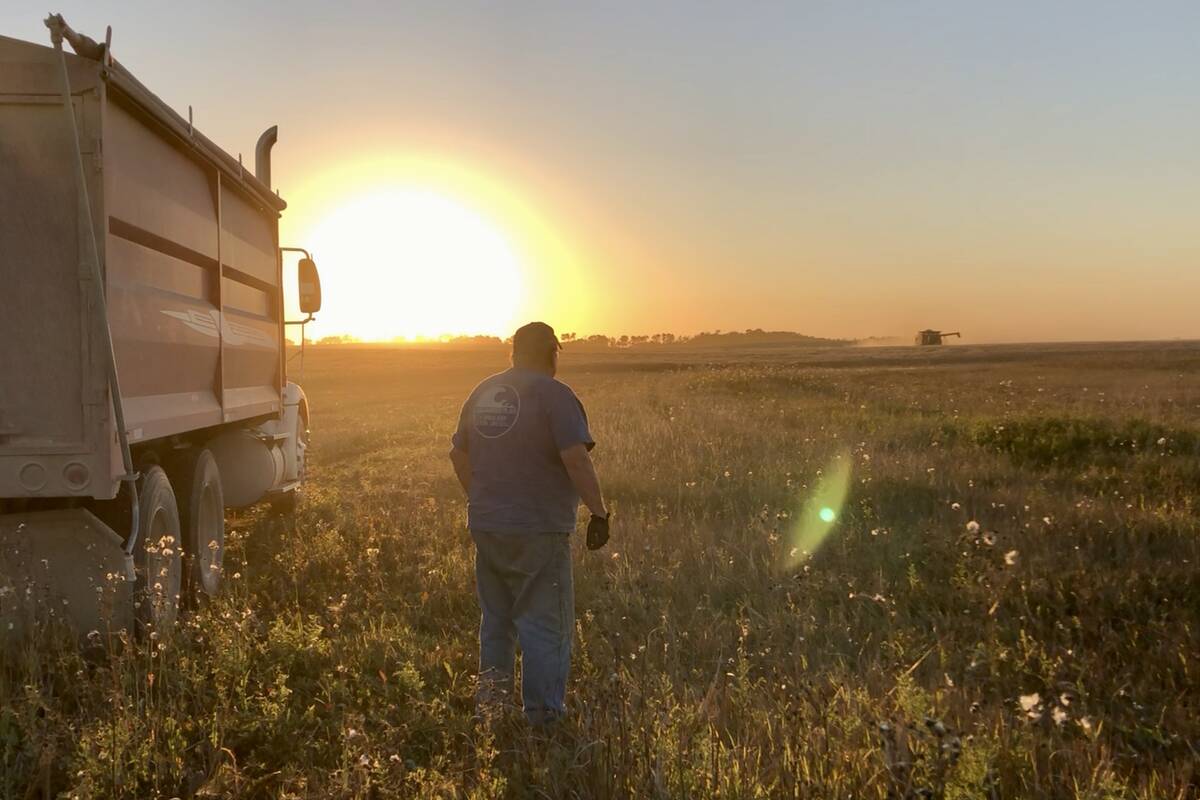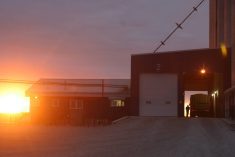Dory Isaac was alone with her husband when he was electrocuted while moving an auger that touched a power line on their Shellbrook, Sask., farm.
“Helmut was lying on the auger,” she said, remembering the April 2, 1998 accident that changed life for her family.
“There was fire coming from his rubber boots. I knew I couldn’t touch him until he was free of it. He dropped off onto the ground. I rolled him over. He wasn’t breathing. There was no pulse. I screamed for help. Dialing 911 was no good for us. I started working on him with rescue breathing. I thought, ‘I can’t plan a funeral.’ What a welcome sound when he gasped for breath.”
Read Also

VIDEO: Bittersweet harvest for this family farmhand
Bruce Burnett helps his brother harvest wheat and canola for the last time on the family farm in Manitoba where they both grew up.
Once Helmut was breathing, Dory drove to the nearest neighbour, who helped put him in a truck and took him to the Shellbrook hospital. He was later transferred to Saskatoon, where he spent the next 31/2 months enduring nine surgeries and skin grafting. He also lost an arm and part of a foot.
“I thanked God for his life and begged that Helmut would not be bitter about his quality of life,” said Dory, who still gets upset about the accident.
She and her four daughters carried on with the chores on the mixed farm and, with the help of their church and community, survived that farming season.
When it was Helmut’s turn to finish the story at the Nov. 14 Farmers with Disabilities conference, he was as frank as his wife.
“For me, the weeks in hospital was worry about money and the bills. I even said I’d be better off to them dead. Dory took over the farm management. I felt threatened and we had trouble working out our roles.”
It was difficult returning home and learning to cope with a hook where his hand used to be. Helmut said he felt like a prisoner in his own house because the doorknobs were too slippery to open and the burned fingers of his other hand lacked feeling and strength.
A strong work ethic “made me feel like a failure” and he couldn’t continue his hobbies of whitewater canoeing and woodworking.
“In three months I lost the mobility most lose in 20-30 years. And I’m at an age when I should be at my most productive. The prosthesis makes me feel more self-conscious.”
After getting rid of the pigs and cattle, the Isaacs struggled through two grain farming seasons. But in September they began a new chapter, moving to the city where Helmut has a two-year job that uses his brain, not his strength.
While the Isaacs still have the farm, it may not be their future. But Helmut said he was encouraged to try farming after his accident because of a visit from a volunteer with a similar amputation.
Personal visits are effective for many injured farmers, said Bob Elian, who co-ordinates the Farmers with Disabilities program. He and other volunteers visit farmers in the hospital to talk about how to continue farming with the limitations of a disability. The new reality can come from a farm accident, a car crash or a heart attack.
For others, the answer may be to stop farming. However, people need to open their minds and explore the stresses and choices of their lives. The way to help those who think they don’t need it is to bring information to them, said Saskatoon psychologist Nikki Gerrard. And the best place to put that brochure or book is the bathroom.
“It’s private, a captive audience. People can read it and no one else knows.”
















